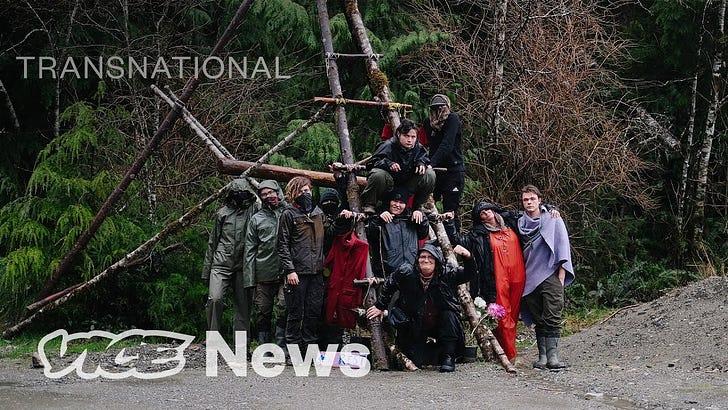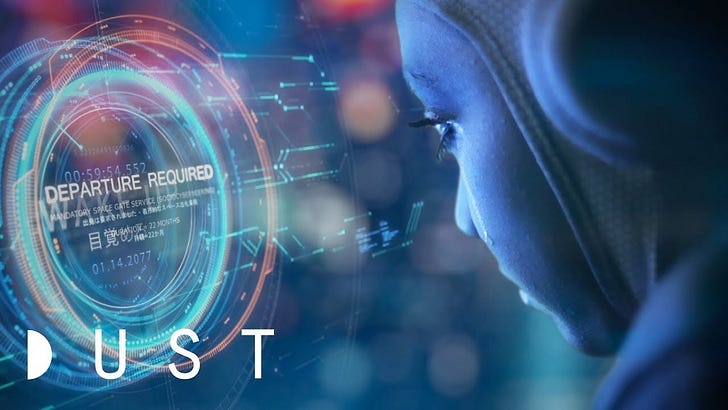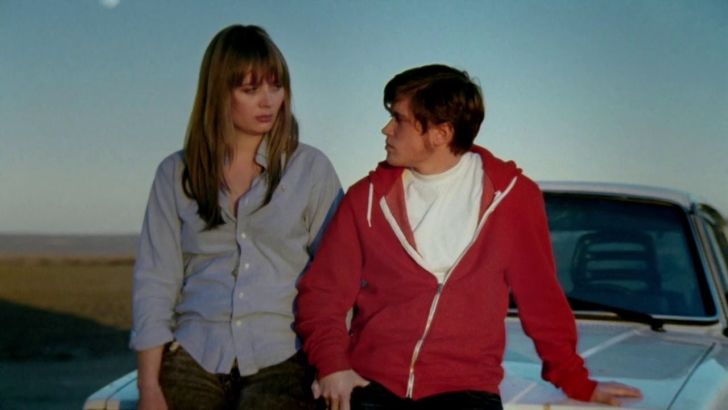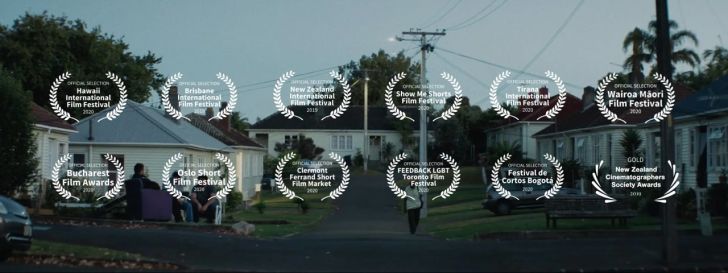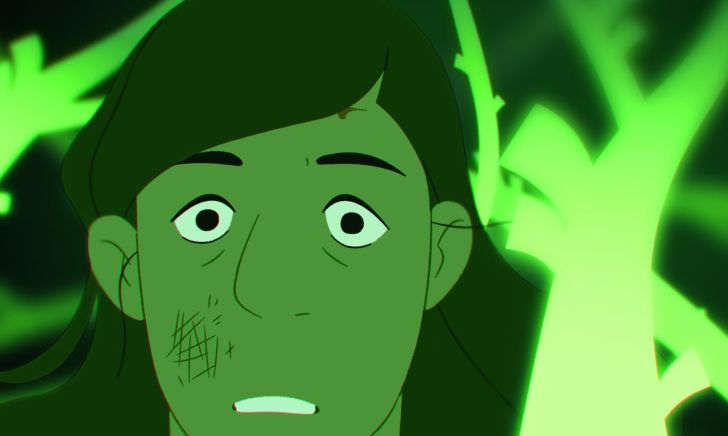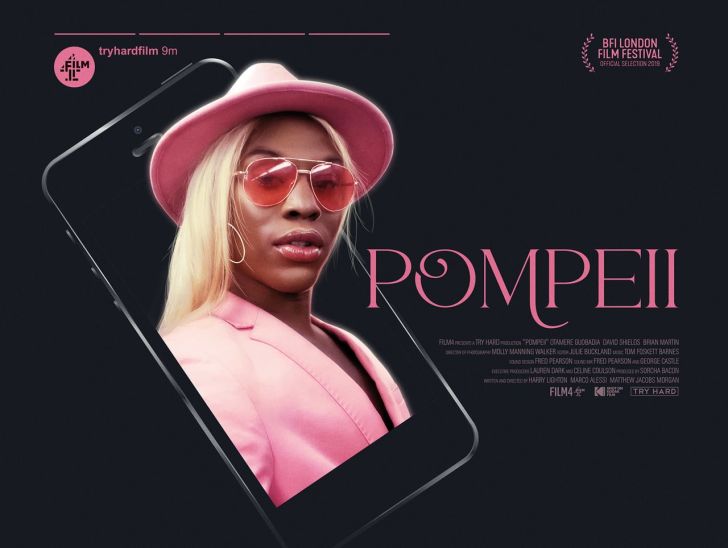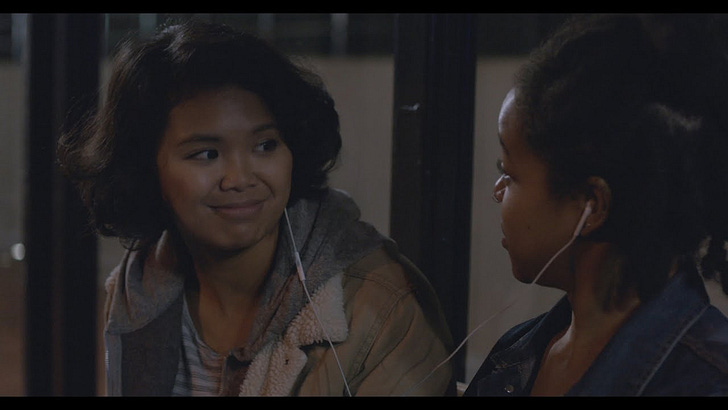Six queer & trans short films are figuring out exactly what they want and who they want to be
I struggled with articulating the theme for this week. I knew that these six films had something in common through their explorations of self and identity, but it was hard to pin down how to define that. “Finding ourselves” didn’t quite work, neither did “naming ourselves” when one of the journeys featured here is explicitly about not needing to give a name to what we are. But in rewatching the last film by Melz Owusu, I realized that they had said it perfectly: “finding a home in ourselves”.
As of this week, I will have recommended over one hundred queer and trans short films to you, out of more than four hundred such films that I’ve watched since last fall! I’m looking forward to seeing those numbers go up as I continue this newsletter.
ARO/ACE, created by Lauren Moss, follows Theo (Julia Thompson) who, after watching her roommate Mandy (Akira Johnson) scroll through dating apps, decides to give dating a try as well. The lack of dialogue and the lovely instrumental score highlight the dissatisfaction Theo feels when her experience with dating doesn’t match Mandy’s, but she discovers that her wants and needs are different by finding a word and community that describe her experience.
ARO/ACE
“My life is threatened, yet this is who I am.”
Because I Am, created by Lawrence Zidyana for the platform Hona Africa, is an animated docu-short about being lesbian in Zimbabwe that is equally beautiful and brutal. The film opens with a chilling excerpt from a speech given to the United Nations General Assembly by long-time Zimbabwean dictator Robert Mugabe, in which Mugabe claims “we are not gays” and that gay rights are contrary to Zimbabwe’s “values, norms, traditions, and beliefs”. The narration then turns to a reading of an original poem by queer Zimbabwean poet and activist Tinashe Wakapila, voiced over depictions of the homophobic violence, including gaybashing and corrective rape, that queer women in Zimbabwe can experience.
The creation of the film is just as compelling and grounded in real experiences of queer African women as the film itself. In a fascinating making-of video, creator Lawrence Zidyana describes how he chose to use actors to create silhouettes for the film that were then layered on top of drawn backgrounds. Five of the six actors were LGBTQ+ women from African countries who sought asylum in the United Kingdom: Moud and Nomusa from Zimbabwe, Valerie from the Ivory Coast, Bliss from Uganda, and Sara from South Africa. Their stories became part of the film as well.
Because I Am
“Being Two-Spirited actually did help me a lot, in a lot of ways.”
The documentary short Respecter la roue | Respecting the Wheel, directed by Melissa Mollen Dupuis, features four Two-Spirited people who talk about their journeys to understanding their sexualities and genders, as well as sharing those identities with other people in their lives and communities. The film’s description (translated into English here) underscores the importance of the medicine wheel: “Some traditional values were pushed aside by colonisation, and Two-Spirited beings are now bullied and discriminated against. In order to heal, we need to bring back the medicine wheel, the wheel of life.”
Director Melissa Mollen Dupuis (Innu) made Respecter la roue | Respecting the Wheel in collaboration with the nonprofit Wapikoni Mobile. According to this bio in English, “Wapikoni is an Indigenous organization that fosters artistic creation and excellence to serve the narrative sovereignty of Nations. Our mission is to promote the expression of Indigenous creative talents through short films, music and XR projects, to promote their works across Canada and the world, to offer our collective of artists a space for personal, artistic and professional development where they can meet, be inspired, identify and prize accomplishments while also promoting the creation of bridges and spaces that contribute to social and societal transformations.”
Respecter la roue | Respecting the Wheel
“We live masculine world that does not allow for rebirth, but would display dead queer bodies still dying to exist.”
Pronouns, written and directed by Mike Paulucci, follows an unnamed Black teenager (Patrick “Patches” Blanton, themselves a rapper and spoken word performer) in Chicago who is performing onstage for the first time at a poetry slam. The teenager’s powerful piece, about identity and oppression towards Black queer trans folks, is almost halted by the appearance of an unexpected face in the audience. Despite the name of the film, we are never given pronouns for our protagonist, but that ambiguity and and the teenager’s own description of identity is itself a definition of who the protagonist is.
Creator Mike Paulucci, in an interview with Short of the Week, said that he found inspiration in the “convergence of two things that I saw at the forefront of our national consciousness. Firstly, equality for people who may identify as LGBTQ, or American minority populations in general. And secondly, the idea of Chicago being at the national forefront to violence against minorities. These things converged in my mind and I started thinking about what it would be like for someone of these backgrounds to live and express themselves in this type of environment (particularly Chicago’s South Side).”
Pronouns
“She is Deaf. What now?”
What Is Wrong With Her?, created by and starring Leah Francisco, is a visual autobiographical poem about Francisco’s life. Growing up Deaf in Greece, she was brought up with the “oral approach” to Deafness that forced her to speak and lipread instead of learning sign language. (Oralism was pioneered by hearing people in the 1880s and has been a prevalant educational approach since then, but many Deaf advocates oppose the oral approach and find it harmful.)
As an adult, Francisco moved to the United Kingdom, where she began to understand her sexuality, first identiyfing as a lesbian and later as pansexual. However, Francisco also faced ableism not only for being Deaf, but for appearing to not be Deaf because she was raised oral and only learned to sign as an adult.
Francisco, who is also a comedian and Deaf queer advocate, wrote and filmed the poem, which is performed in British Sign Language, in spring 2020 during the COVID-19 lock-down.
What Is Wrong With Her?
“Trans identity, for me, is like traversing all ideas of gender, all ideas of femininity or masculinity, and finding myself amongst all of this white noise.”
Black Trans Masculinity, directed and filmed by Will Stanley, is about Melz Owusu, a queer and transmasculine former-activist, scholar, author, consultant, and life coach in the United Kingdom. This intimate interview features Melz discussing what Black trans masculinity means to them. Melz shares a variety of experiences, including describing their transition as a nonbinary transmasculine person; how, being brought up as a dark-skinned Black woman, Black womanhood and feminism is still a political home for them; their fears of transition and the way that impacts how they are policed and criminalized (which Black women face as well, but differently); their experience starting testosterone hormone replacement therapy; and how understanding their transness is the greatest act of self-love they have gone through.
Melz’s work over the years has included organizing for Black Lives Matter UK, for decolonizing education, and for trans visibility. Melz is currently a PhD researcher at University of Cambridge, where their work explores decolonisation, the radical Black imagination and building transformative worlds. They are also the founder and director of Free Black University, an “initiative born out of the intention to create a radical, anti-colonial and queer space in which we can reimagine higher education”. As their website notes, Free Black University is a space for Afro-futurists, Black Feminists, Black Queer folk, Black Thinkers, Black Spiritualists, Black Academics, Black Artists, Black Activists, Black Healers, Black Philosophers, Black Writers, Black Creatives, and Black Visionaries.
Black Trans Masculinity

